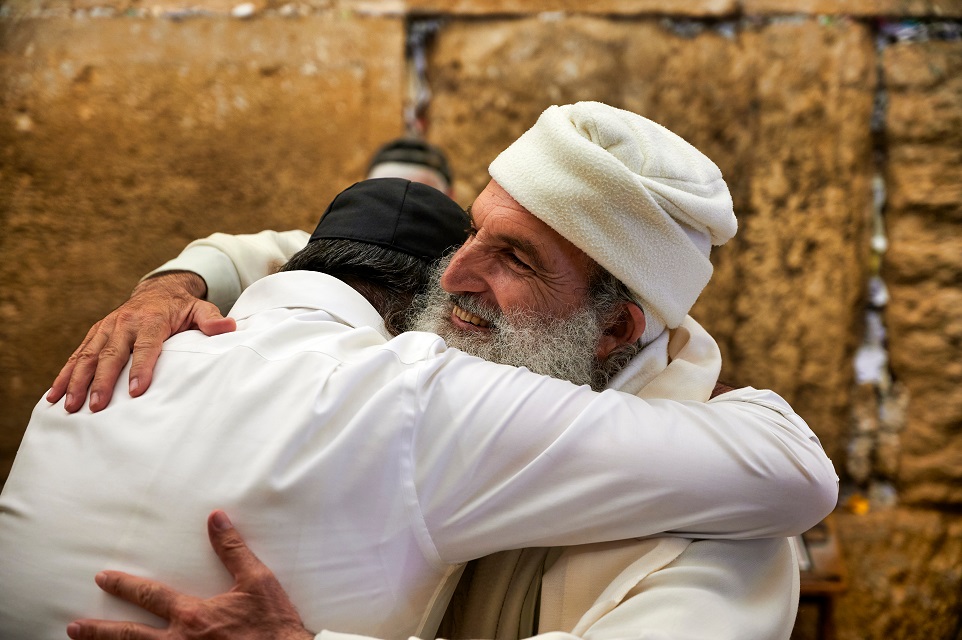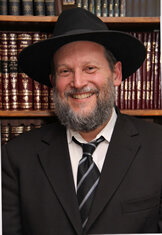
The Sifra asks, “Why did the Torah put the laws of Peah, Sicchicah, and Leket in-between the laws of Pesach and Shavuos on one side and Rosh Hashana, Yom Kippur, and Sukkos on the other side? (All these laws of Matanos Leaniyim were already stated in Parshas Kedoshim)? To teach us that whoever gives the Matanos Leaniyim has the same level as if the Bais Hamikdash is built in his day and he brings his Korbanos in it.”
We have many questions that we have to ask.
1. If the whole focus of Matanos Aniyim is like bringing Korbanos, why put it in-between the Moadim? It should be put in the earlier Parshios that deal with the Korbanos.
2. I could understand the placement if the Sifra said that giving Matanos Aniyim are like fulfilling the Moadim. However, in Emor the stress is not on the Korbanos like in Parshas Pinchas. So why focus on the Korbanos of the Chag. (the Korbanos mentioned are mainly from the Tzibbur and not an individual's Korban).
3. The Sifra says “It is as if the Beis Hamikdosh is built” implying that we are talking about giving Matanos Aniyim when there is no Bais Hamikdos. The Rambam says that once the Galus of the ten tribes happened then there is no obligation to give Matnos Aniyim from the Torah. It is only Rabbinical. It turns out the Torah is telling us the great importance of giving Matnos Aniyim when there is no obligation to give?
A major Mekubal told me that if someone does not give Maaser then in Samayim they are considered an ACHZAR, a cruel person. How do we understand this? Someone asked me a question about money found next to a Tzddakah box that they did not know if it was for Tzeddakah or their own money. For various reasons I did not want to answer the question so they said that they will ask their Rav who is very lenient about Maarer because he holds that is only a Minhag. It says in Shulchan Aruch that you can fulfill your obligation for Tzeddakah with very little money. If this is the case what is this all about? When the Sfra says that it is like going to the Beis Hamikdash and bringing a Korban, the focus is not about bringing the Korban. It is about the experience of going to the Beis Hamidosh. Why where the Chagim so crucial to Judaism? Three times a year a person got close to the ultimate EMES and KEDUSAH. The Gemorah in Chagigah says that not only do we come “to see Hashem” but we also come “to be seen by Hashem” What does this mean? Our coming to “see Hashem” brings us out of the rote of our normal lives and shows us what spiritual levels we should truly aspire to in order to apply them to our daily lives. “Hashem coming to see us” creates a tremendous sense of awe within us. We are actually standing before the King who is looking into our very souls to see what level we are really at.
The Maharal says that history is not linear but circular. This means it is not true that the farther we get away from the past the less influence the past has. We are always returning to the tremendous spirituality that was released in the past and we have the ability to tap into it during the Chagim and through the unique Mitzvots of each Yom Tov. This spiritual energy combined with the tremendous Kedusah of the Beis Hamikdash elevated each individual to very high levels. This spiritual elevation is also achieved through the Matnos Aniyim.
The Gemorha in Berachos 8A says that anyone who has one Shul in his town and does not daven there is called a “Bad Neighbor”. That is a terrible title which Pirkei Avos says is one of the worst titles a person can have. Why is he given such a harsh name. Chazal tell us that a Beis Hakeneses is a MIKDASH ME’AT. It is the substitute today for the Beis Hamikdash. A person that stays away says that I do not need that Ruchnius because I am fine just the way I am. I can become a Tzaddik on my own. That person who is a “neighbor” to the Shul and does not take advantage of it will become Evil. Once a person begins to rely on himself and his own Haskafos and Dass Torah, then it becomes a disaster. The person begins to believe that they are always right and he justifies his actions. However, if a person is part of the Shul where the Sechinah comes when there is a Minyan and has the sanctity of a Mikdash Me’at then they can be influenced in a positive way. They examine their beliefs to see if they are true or are they just the ramblings of the Yetzer Harah.
That is why the Gemorah says that someone who goes to a friends’ door to greet him before davening has the same status as someone who builds a Bamah and sacrifices on it. A Bamah is an alter built outside of the Bais Hamikdash. In essence, what is the person who sacrifices at the Bamah saying? He says that he does not need the Bais Hamikdash because he can make his own Ruchnious. If a person had the Chuzhpah to put a humans’ honor before Hashems’ honor, then that person is turning his meeting into a Bamah. He is dictating the rules of Ruchniuous and not subjugating himself to the Ruchniuous of Hashem.
What is an ACHZAR? It is a cruel person. It comes from two words ACH ZAR, “only a stranger”. He makes himself a stranger to others and only cares about himself. A Roman official asked Rebbe Akiva “If Hashem loves the poor, why did He make so many of them?” Rebbe Akiva answered, “To give reward to those that help them”. Hashem does not need me to give Tzedakah to a poor person. If Hashem wants a poor person to get money, He has many ways to get it to him. Why am I giving him the money? It is only because Hashem wants to do Chessed for me to give me a Zechus by giving the Tzedakah.
In essence, the poor person is doing us the greatest favor by taking our money. A person who understands this concept will not begrudge the giving of Tzedakah or feel he is losing out by giving it. The true understanding of Tzedakah brings a person to the highest level of Ruchniuous. They realize that all the good that they do is not because they chose to do it out of the generosity of their own heart. They are doing themselves the biggest favor. They are acquiring major Merit that in turn Purchases for them the ability to go to higher levels in their spirituality that they were not given permission to achieve before.
Just as in the secular world “IT TAKES MONEY TO MAKE MONEY”, so too in the spiritual world “IT TAKES MERIT TO GET MORE MERIT” to rise in levels of Kesusha and Taharah. This is why the giving of Matanos Aniyim today when there is no Torah obligation, is compared to the spirituality gained in the time of the Bais Hamikdosh. Technically, a person can get away with very little. MAASER IS ONLY A CUSTOM NOT AN OBLIGATION!. However, this is exactly what we need to overcome, our inherent ACHZRIOUS, our selfish self serving tendencies to come close to Hashem. A person stops thinking “about Me” and considers everyone else a stranger.
We climb out of our own self-centered world the same way we did when we went to the Bais Hamikdash. When we overcome being ACHZARIM and become BAALAI CHESED, then we are going to “see Hashem’ and have “Hashem see us” just like the time of the Bais Hamikdash.
Rabbi Rhodes was the Rosh Yeshiva of Torah Mitzion in Great Neck, Long Island and Merrick, long island for over 15 years. He then went on to co-found the Midwest Torah center, a shul and outreach center, in South Bend Indiana. Rabbi Rhodes is an international motivational speaker both in America and Israel.. In addition to his work at the yeshiva, Rabbi Rhodes has a large counselling practice that provides help to a diverse segment of the Jewish population.








